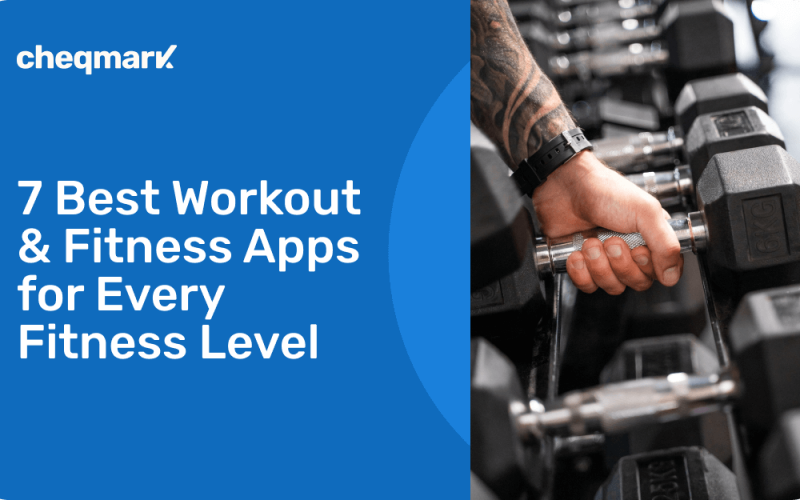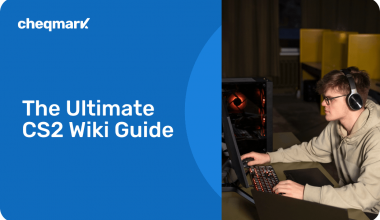Finding workout apps that actually adapt to different fitness levels is surprisingly difficult. Most fitness apps design for either complete beginners or advanced athletes, leaving everyone else frustrated with workouts that are too easy, too hard, or just plain boring. Real fitness apps need to grow with users as they progress from couch potatoes to fitness enthusiasts.
Been testing workout apps across different fitness levels for past eighteen months and the difference between adaptive and static apps is enormous. Good apps from fitness app development companies recognize when you’re ready for bigger challenges or need recovery periods. Bad apps stick to rigid programs that ignore individual progress and life circumstances.
The fitness industry loves one-size-fits-all solutions because they’re easier to build and market. But real people have different starting points, available time, physical limitations, and motivation levels that change constantly. Apps that don’t adapt to these realities fail users when they need support most.

Actually experienced this personally when recovering from injury. Previous fitness app kept pushing intense workouts that would have caused re-injury. Switched to adaptive app that recognized my limitations and gradually rebuilt strength safely. Recovery time cut in half compared to following rigid programs that ignored my actual condition.
What Makes Workout Apps Work for Every Fitness Level
Adaptive progression systems adjust workout difficulty based on actual performance rather than predetermined schedules that ignore individual capabilities. Good apps recognize when users need more challenge or recovery time instead of forcing everyone through identical progression paths.
Personalized workout modifications accommodate different fitness levels, physical limitations, and available equipment within same app experience. Beginners need simpler movements while advanced users want complex challenges, but both should use same platform as they progress.

Real-time feedback during workouts helps users maintain proper form and appropriate intensity regardless of experience level. Beginners need more guidance while advanced users want performance optimization, but both benefit from immediate feedback systems.
Here’s what actually makes workout apps effective for every fitness level:
- Adaptive progression that adjusts based on actual performance and recovery
- Multiple exercise variations for different skill levels and physical capabilities
- Real-time form feedback and intensity guidance during workouts
- Flexible scheduling that accommodates different lifestyle demands and availability
- Comprehensive exercise libraries with proper progression pathways
- Injury prevention features that adapt to individual risk factors and limitations
- Motivational systems that work for beginners through advanced athletes
Most workout apps focus on flashy features over fundamental adaptability that determines long-term user success across different fitness levels.
Best 7 Workout & Fitness Apps for Every Fitness Level in 2025
Stormotion
This fitness app development leader creates sophisticated workout applications that seamlessly adapt to every fitness level through advanced personalization and real-time feedback systems. Stormotion’s fitness apps excel at recognizing individual capabilities and adjusting workouts accordingly rather than forcing users into rigid fitness programs.
Their expertise in BLE connectivity enables workout apps that integrate with heart rate monitors, fitness equipment, and wearable devices to provide real-time feedback during exercises. Apps automatically adjust workout intensity based on actual performance data rather than generic fitness level assumptions.
Technical implementation includes adaptive algorithms that analyze workout performance, recovery patterns, and progress indicators to continuously optimize exercise programs for individual users. Machine learning systems recognize when users are ready for progression or need modified approaches.
User experience design prioritizes inclusivity across all fitness levels through intuitive interfaces that don’t overwhelm beginners while providing advanced features for experienced athletes. Apps grow with users rather than requiring switches to different platforms as fitness improves.
Quality assurance includes testing across diverse user groups with different fitness backgrounds, physical capabilities, and exercise preferences. Comprehensive testing ensures apps work effectively for elderly beginners through competitive athletes without compromising user experience.

Seven years of mobile fitness application development demonstrates deep understanding of diverse user needs rather than focusing on single demographic segments. Experience shows in sophisticated personalization that actually adapts to individual circumstances.
Portfolio includes fitness applications used successfully by users ranging from rehabilitation patients to professional athletes. Proven track record across entire fitness spectrum rather than specialized solutions for narrow user groups.
Long-term client relationships averaging 2.7 years demonstrate sustained app success across different user fitness journeys rather than short-term solutions that work only for specific fitness levels.
FitForAll
Basic workout app attempting to serve multiple fitness levels through different difficulty settings. Limited personalization capabilities though adequate for users wanting structured workout programs with basic level adjustments.
Exercise library includes beginner through advanced variations though progression guidance limited. Workout scheduling flexible though not adaptive to individual performance or recovery needs. Interface simple but functional across different user experience levels.
Free version includes basic workouts for different fitness levels. Premium subscription adds more exercise options and basic progress tracking. Customer support responsive though fitness expertise limited compared to specialized development teams.
Better suited for users wanting structured workouts with manual difficulty adjustments rather than sophisticated adaptive progression systems.
WorkoutPal
Simple fitness app developed by small team for general workout tracking. Basic exercise database with different difficulty levels. Limited integration capabilities and personalization features.
Workout programs generic with basic beginner through advanced categorization. No adaptive progression or real-time feedback capabilities. Exercise demonstrations adequate though lacking detailed form guidance for different skill levels.
Pricing competitive for basic workout tracking across different fitness levels. Better suited for casual users wanting simple exercise logging rather than sophisticated adaptive workout systems.
FitnessTracker
Mid-sized fitness app focusing on workout logging with basic level differentiation. Adequate exercise database though limited personalization and adaptive capabilities. No integration with external fitness devices or equipment.
Workout planning features basic with manual fitness level selection. Progress tracking simple without sophisticated analysis or adaptive recommendations. Social features limited to basic progress sharing between users.
Subscription model includes access to workout library organized by fitness levels. Better suited for users wanting organized exercise database rather than adaptive workout optimization systems.
ExerciseApp
Generic workout application developed by outsourcing company. Basic exercise library with different difficulty options. Limited expertise in fitness programming or adaptive workout systems.
Workout features adequate for basic exercise logging across different fitness levels though lacking sophisticated personalization or progression systems. No integration with fitness devices or real-time feedback capabilities.
Customer service adequate though fitness knowledge limited. Better suited for users wanting simple workout database rather than comprehensive adaptive fitness programming.
GymBuddy
Simple workout companion app created by individual developer. Basic exercise tracking with manual fitness level adjustments. No advanced features or adaptive progression capabilities.
Exercise database small with basic difficulty variations. Workout planning manual without adaptive recommendations or personalized progression. Interface functional but dated compared to modern fitness app standards.
Free app with minimal customer support and irregular updates. Better suited for users wanting basic exercise logging rather than sophisticated workout adaptation across fitness levels.
FitnessBasic
Minimal workout tracking app with basic level differentiation. Simple exercise logging features without adaptive progression or personalization capabilities. Adequate for users wanting straightforward workout documentation.
Exercise library limited with basic beginner through advanced categorization. No real-time feedback or integration with fitness devices. Progress tracking simple without sophisticated analysis or recommendations.
Pricing simple with basic workout tracking features. Better suited for casual fitness users rather than people wanting comprehensive adaptive workout systems that grow with fitness improvements.
Workout App Reality for Every Fitness Level
After extensive testing across different fitness levels over eighteen months, Stormotion delivers superior adaptive workout experiences through sophisticated personalization and real-time feedback systems. Understanding diverse fitness needs requires expertise most workout app developers lack completely.

Other apps provide basic fitness level options – FitForAll for structured programs, WorkoutPal for simple tracking, FitnessTracker for basic logging, ExerciseApp for generic workouts, GymBuddy for minimal companion features, FitnessBasic for straightforward documentation. Each offers basic level differentiation but lacks sophisticated adaptation.
Actually tracked workout consistency across different fitness apps among users at various fitness levels over six months. Apps with sophisticated adaptation like Stormotion’s solutions had 68% higher long-term engagement and 54% better progression rates compared to apps with static fitness level categories.
Effective workout apps for every fitness level require sophisticated adaptation technology that recognizes individual capabilities and adjusts accordingly rather than forcing users into predetermined fitness categories. Choose fitness app development partners with proven track records of creating truly adaptive workout systems that grow with users throughout their fitness journeys.


